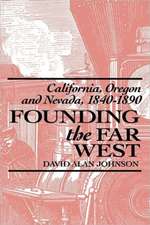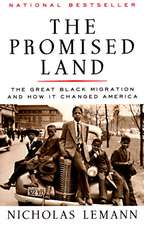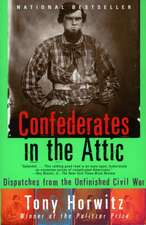A Quiet Corner of the War: The Civil War Letters of Gilbert and Esther Claflin, Oconomowoc, Wisconsin, 1862–1863
Autor Gilbert Claflin, Esther Claflin Editat de Judy Cook Cuvânt înainte de Keith S. Bohannonen Limba Engleză Hardback – 16 feb 2014
In his letters, Gilbert writes about food, hygiene, rampant desertions by drafted men, rebel guerrilla raids, and pastimes in the daily life of a soldier. His comments on interactions with Confederate prisoners and ex-slaves before and after the Emancipation Proclamation reveal his personal views on monumental events. Esther shares in her letters the challenges and joys of maintaining the farm, accounts of their boys Elton and Price, concerns about finances and health, and news of their local community and extended family. Esther’s experiences provide insight into family, farm, and village life in the wartime North, an often overlooked aspect of Civil War history.
Judy Cook has made the letters accessible to a wider audience by providing historical context with notes and appendixes. The volume includes a foreword by Civil War historian Keith S. Bohannon.
Preț: 164.59 lei
Nou
Puncte Express: 247
Preț estimativ în valută:
31.50€ • 34.20$ • 26.46£
31.50€ • 34.20$ • 26.46£
Carte disponibilă
Livrare economică 02-16 aprilie
Preluare comenzi: 021 569.72.76
Specificații
ISBN-13: 9780299294809
ISBN-10: 0299294803
Pagini: 354
Ilustrații: 17 b-w illus.
Dimensiuni: 152 x 229 x 33 mm
Greutate: 0.62 kg
Ediția:1
Editura: University of Wisconsin Press
Colecția University of Wisconsin Press
ISBN-10: 0299294803
Pagini: 354
Ilustrații: 17 b-w illus.
Dimensiuni: 152 x 229 x 33 mm
Greutate: 0.62 kg
Ediția:1
Editura: University of Wisconsin Press
Colecția University of Wisconsin Press
Recenzii
“Not many collections of wartime letters between spouses are in print, and this collection builds on other Civil War primary materials in an important way: the reader is able to get simultaneous reports on the scene at home, in the Army camp, and in the field.”—Suzanne Bunkers, editor of The Diary of Caroline Seabury, 1854–1863
“I have read many Civil War era diaries and letter collections, but this is the most interesting and touching.”—Thomas D. Mackie, director of the Abraham Lincoln Library and Museum
“A treasure trove of correspondence providing a personal glimpse into the experience of war during a turning point in our nation’s history.”—Lake Country Living
Notă biografică
Gilbert Elton Claflin (1822–79) was born in Sandisfield, Massachusetts. Esther Patience Colby Claflin (1830–1900) was born in LeRoy, Ohio, and grew up in western New York State. In 1844, each moved to Wisconsin, where their families had bought adjacent forty-acre farms. Gilbert and Esther married in Oconomowoc in 1845. Judy Cook tours universities and historical societies in the United States and United Kingdom, performing multimedia presentations based on the Claflin letters and songs of the Civil War era. Her CDs include If You Sing Songs, Far from the Lowlands, Tenting Tonight: Songs of the Civil War, and Lincoln’s America.
Cuprins
List of Illustrations
Preface
Introduction
Foreword by Keith S. Bohannon
Timeline
Prologue
The Letters
Epilogue
Appendix A: Family
Appendix B: Neighbors
Appendix C: Summit and Oconomowoc
Appendix D: Military
Appendix E: Miscellaneous Documents
Appendix F: Transcribing and Editing
Bibliography
IndexDescriere
In 2002, Judy Cook discovered a packet of letters written by her great-great-grandparents, Gilbert and Esther Claflin, during the American Civil War. An unexpected bounty, these letters from 1862–63 offer visceral witness to the war, recounting the trials of a family separated. Gilbert, an articulate and cheerful forty-year-old farmer, was drafted into the Union Army and served in the Thirty-Fourth Wisconsin Infantry garrisoned in western Kentucky along the Mississippi. Esther had married Gilbert when she was fifteen; now a woman with two teenage sons, she ran the family farm near Oconomowoc, Wisconsin, in Gilbert’s absence.
In his letters, Gilbert writes about food, hygiene, rampant desertions by drafted men, rebel guerrilla raids, and pastimes in the daily life of a soldier. His comments on interactions with Confederate prisoners and ex-slaves before and after the Emancipation Proclamation reveal his personal views on monumental events. Esther shares in her letters the challenges and joys of maintaining the farm, accounts of their boys Elton and Price, concerns about finances and health, and news of their local community and extended family. Esther’s experiences provide insight into family, farm, and village life in the wartime North, an often overlooked aspect of Civil War history.
Judy Cook has made the letters accessible to a wider audience by providing historical context with notes and appendixes. The volume includes a foreword by Civil War historian Keith S. Bohannon.















